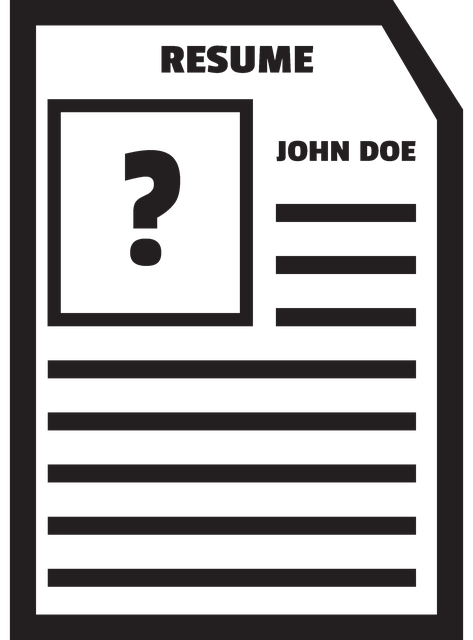In today's scrutinized hiring landscape, robust recruitment and background checks are vital for companies aiming to protect their reputation. These processes verify candidates' intentions, work ethics, and histories, preventing potential disasters like image damage or loss of public trust. By employing multifaceted techniques such as criminal records reviews, reference verifications, credit checks, and educational history confirmations, organizations minimize risks, align with ethical criteria, and demonstrate a commitment to integrity and accountability. Effective recruitment and background checks build trust, foster positive reputations, and ensure long-term sustainability by preventing negligent hiring, unethical behavior, and potential scandals.
In today’s world, where a single scandal can tarnish a company’s reputation, understanding the critical role of recruitment and background checks is paramount. This article explores how these checks act as a shield, protecting companies from public scrutiny and legal pitfalls. From impact on brand perception to legal obligations, we delve into the essential aspects of background screening. Learn about various check types, their purposes, and how thorough processes can prevent scandals, fostering trust with employees and the public.
- The Impact of Recruitment Checks on Company Reputation
- Types of Background Checks and Their Purposes
- How Thorough Checks Can Prevent Public Scandals
- Legal Obligations and Ethical Responsibilities
- Building Trust with Employees and the Public Through Consistent Screening
The Impact of Recruitment Checks on Company Reputation

The process of recruitment and background checks plays a pivotal role in safeguarding a company’s reputation. In an era where hiring practices are increasingly scrutinized, thorough screening can prevent potential disasters. A simple oversight or failure to conduct proper checks could result in hiring individuals with harmful intentions, poor work ethics, or a history of misconduct—all of which could severely damage the company’s image and trustworthiness.
By implementing robust recruitment and background checking procedures, organizations demonstrate their commitment to integrity and due diligence. This shows not only potential employees but also the public that the company values responsibility and accountability. Effective checks can weed out unsuitable candidates, ensuring that those hired align with the organization’s values and standards, thereby fostering a positive reputation in the long run.
Types of Background Checks and Their Purposes

In the realm of recruitment, background checks serve as a crucial tool for protecting a company’s reputation. These checks go beyond verifying basic employment and education history to uncover potential red flags that could affect an applicant’s integrity, reliability, or suitability for the role. One primary type is criminal background checks, which scrutinize an individual’s legal record, helping employers gauge candidates’ adherence to laws and ethical standards.
Another significant category is reference checks, where former employers or colleagues are contacted to gain insights into the candidate’s past performance, work ethic, and character. Credit checks are also essential, as they provide financial integrity clues. Additionally, many companies conduct education and employment verification to ensure academic credentials and previous work experience align with what was provided by the applicant. These multifaceted background checks form a robust defense against potential hires who might pose reputational risks if hired.
How Thorough Checks Can Prevent Public Scandals

Thorough recruitment and background checks are an essential first line of defense against potential public scandals. By delving into a candidate’s past, including their employment history, education, and personal references, companies can uncover any red flags or discrepancies that might indicate unethical behavior. This proactive approach allows organizations to make informed decisions, ensuring they bring on board individuals who align with their values and standards.
These checks serve as a crucial crucible, sifting through applicants to identify potential risks. They help prevent the hiring of folks with a history of misconduct, financial irregularities, or legal issues that could damage the company’s reputation if exposed. By implementing rigorous background screenings, companies demonstrate their commitment to integrity and accountability, fostering trust among stakeholders, customers, and the public at large.
Legal Obligations and Ethical Responsibilities

In today’s world, where a company’s reputation can be built or shattered in an instant, understanding the role of checks is crucial. Beyond legal requirements, organizations have ethical responsibilities to ensure their hiring processes are thorough and reliable. Recruitment and background checks serve as a protective measure, not just a compliance ritual. They help screen candidates, verifying their identity, employment history, and criminal records. This process is essential to mitigate risks associated with negligent hiring, which can lead to costly legal consequences and severe damage to the company’s public image.
Moreover, these checks are a testament to an organization’s commitment to ethical business practices. By conducting comprehensive background investigations, companies demonstrate their responsibility towards fostering a safe and secure work environment. This includes safeguarding against potential threats like fraud, theft, or harassment. Effectively, recruitment and background checks are not just tools for compliance; they are gatekeepers that protect the company’s reputation and ensure its long-term sustainability.
Building Trust with Employees and the Public Through Consistent Screening

Building trust is pivotal for any company’s reputation, and this starts with its workforce. Recruitment and background checks play a crucial role in ensuring that employees align with the organization’s values and can be trusted to act in its best interests. Consistent screening helps establish a culture of integrity from the get-go, instilling confidence among both employees and the public.
By conducting thorough checks during the recruitment process, companies demonstrate their commitment to upholding high standards. This includes verifying employment history, checking references, and conducting criminal background screenings, if applicable. Such practices not only identify potential risks but also weed out candidates who might compromise the company’s reputation or engage in unethical behavior.
